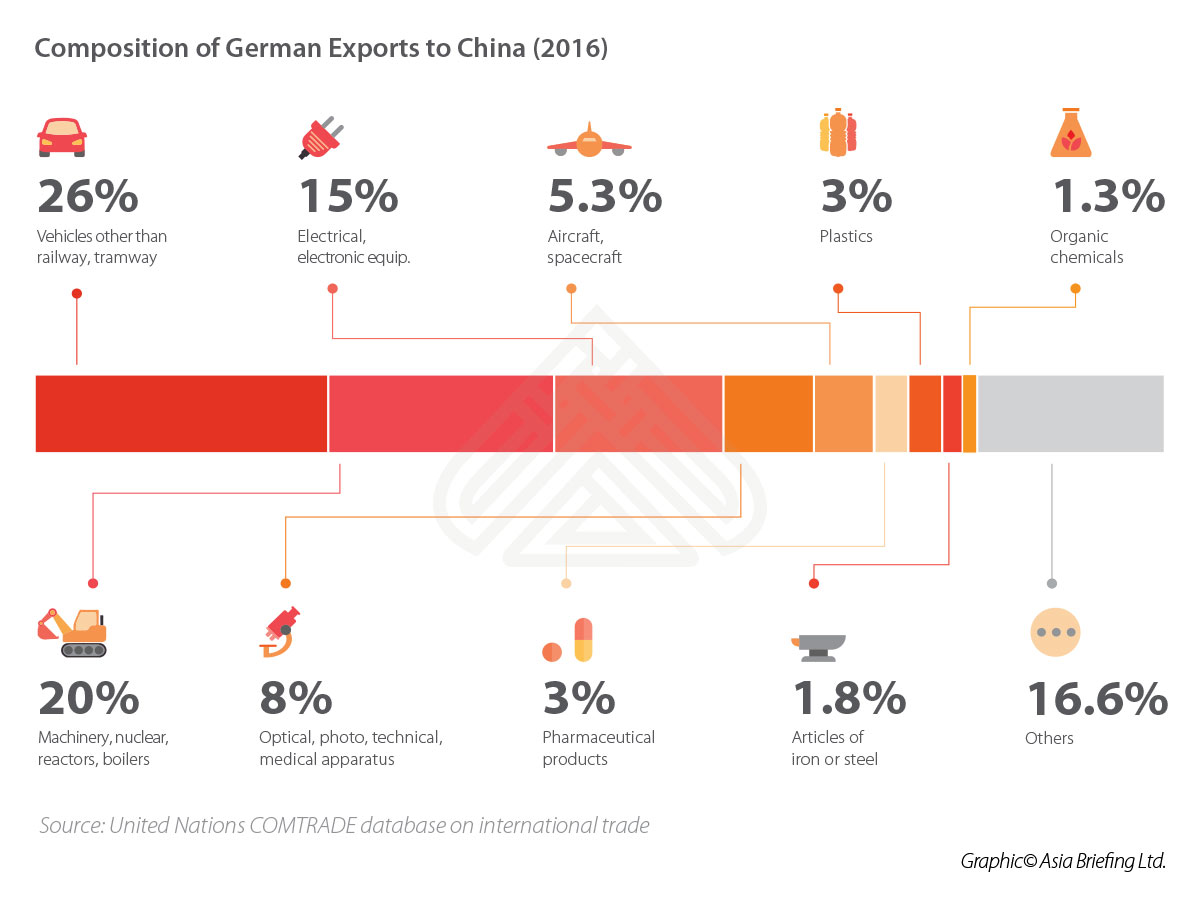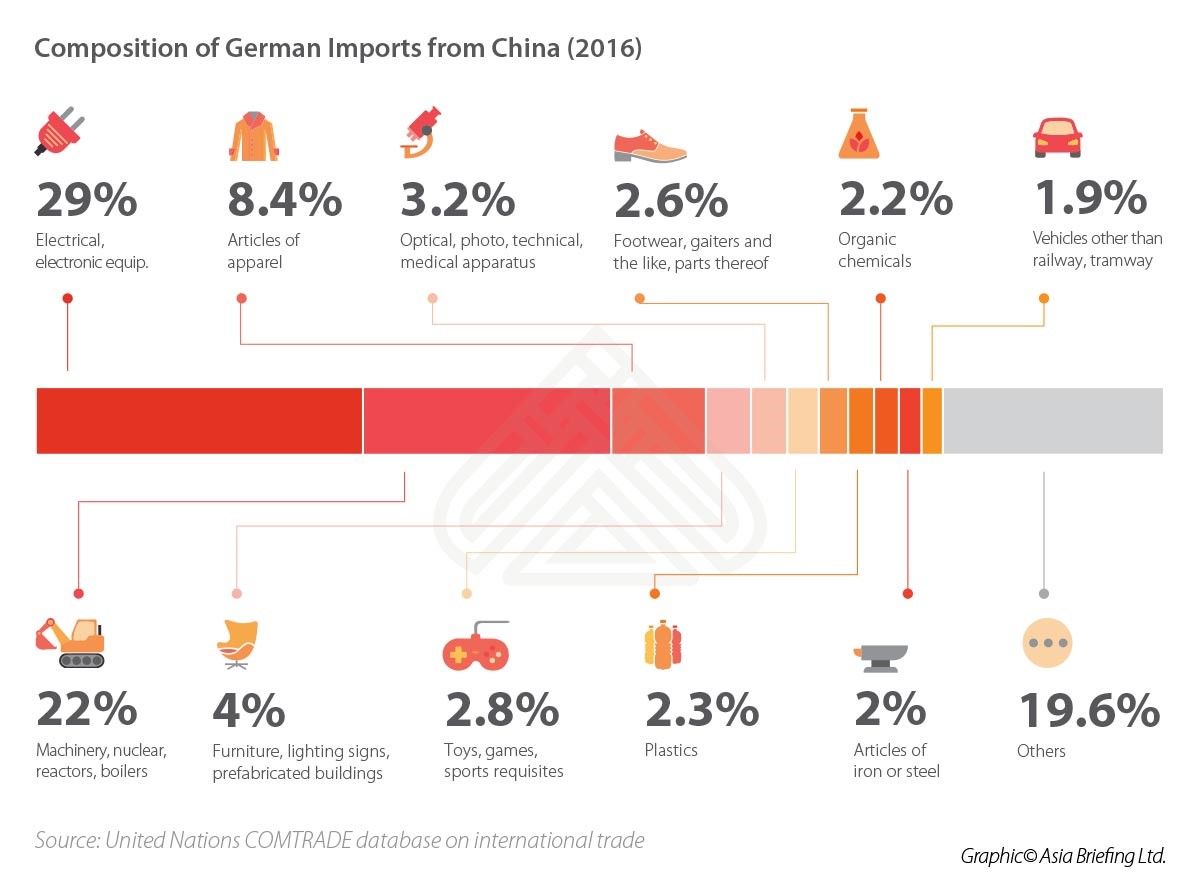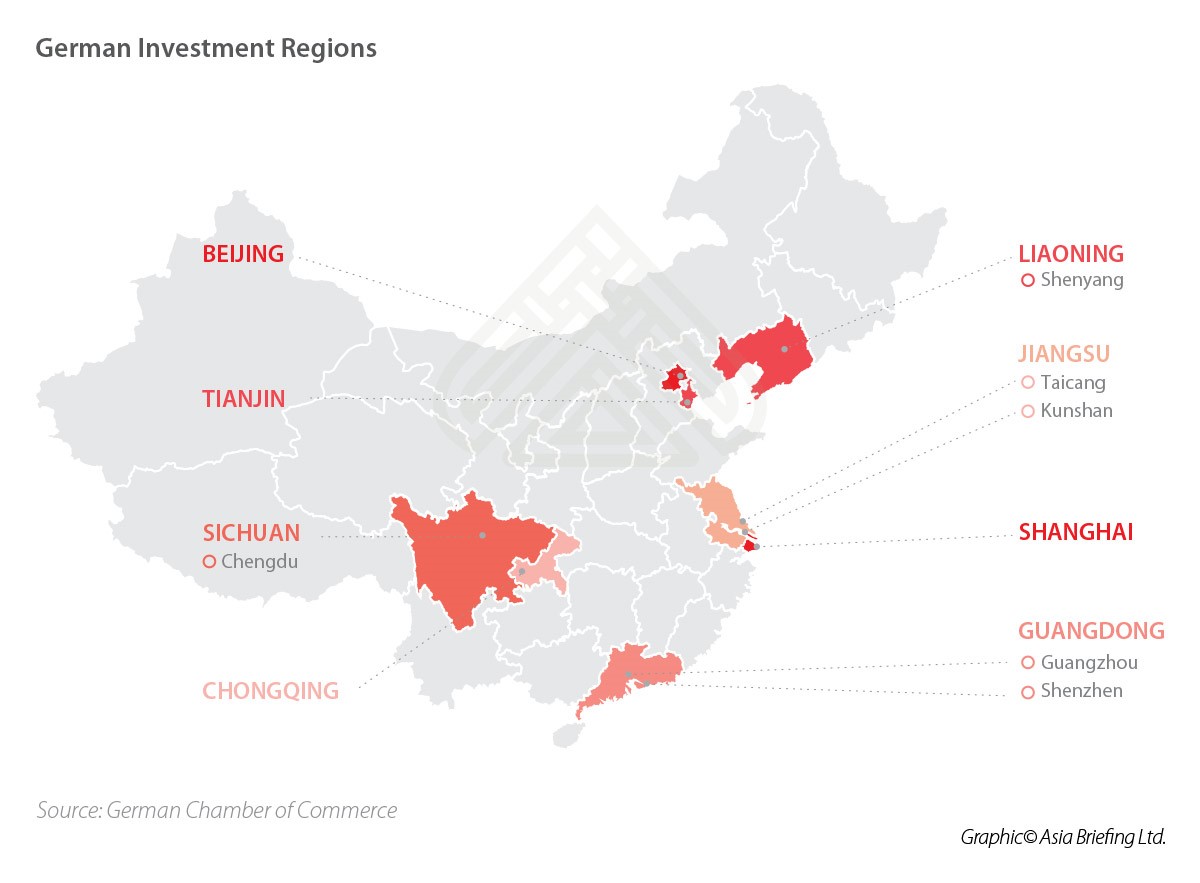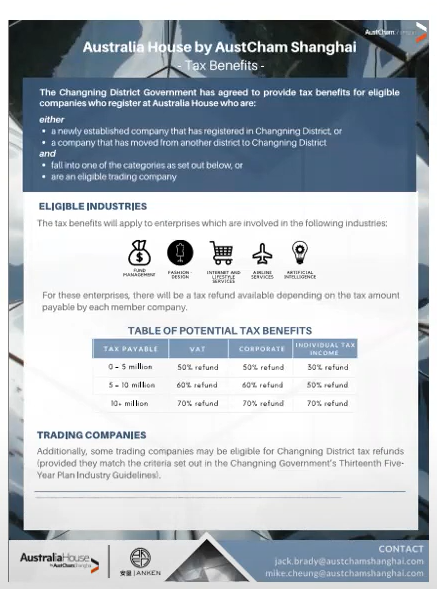China-Germany Relations: Opportunities Emerge as Investment Ties Grow
China-Germany Relations: Opportunities Emerge as Investment Ties Grow
May 24, 2018
In 2017, China kept up its spot as Germany’s biggest trading partner for the second successive year.
The two nations moved to a full strategic partnership in 2014 and have since profited from investments in the territories of trade, technology, and innovation.
After the UK’s choice to leave the EU and the US election of President Trump, China and Germany – as the second and fourth biggest economies on the world – have been progressively called upon to lead on global economic affairs.
China and Germany facilitated the last two G20 summits, and both repeatedly push the need to advance globalization, facilitate investment, and defend free trade.
China’s Belt and Road Initiative (BRI) serves these desire, and Germany is seen as a key European participant of the aspiring project.
Consequently, Sino-German business and economic ties are ready to become more grounded.
Investment facilitation through industrial parks
The German and Chinese governments have built up a high-level fiscal and financial dialogue mechanism and released the document Program of Action for China-Germany Cooperation in 2014.
Improving industrial cooperation toward innovation is a key objective of the joint program, as represented in Germany’s “Mechanical 4.0” and China’s “Made in China 2025” initiatives.
Sino-German industrial parks fulfill the goals of these initiatives by technology incubation and development.
• Sino-German (Shenyang) Intelligent Equipment Manufacturing Park: This is a vital hub for insightful and advanced machinery manufacturing; its partners include global giants such as BMW, Siemens, and BASF.
• Kunshan German Industrial Park: The hub focuses on small and medium-sized enterprises (SMEs), focusing on American and European enterprises that offer expertise in high efficiency production, science and technology, environmental protection, and independent branding. Leading industries here are: precision machinery, top of the line foods, and logistics.
• Sino-German Small and Medium Enterprises Cooperation Park: It is located in Pujiang County, Chengdu in Sichuan region. By 2020, the park expects to host more than 100 operating German enterprises, which will create RMB 10 billion in economic value. Beside the infrastructure, the region’s population of around 100 million gives the necessary labor force required by German enterprises and joint ventures based here. Vocational training in this district to teach local Chinese students to German standards makes the park quite appealing for German financial investors.
Amid his visit to Berlin in 2017, Chinese Premier Li Keqiang and German Chancellor Angela Merkel signed cooperation agreements in economy and trade, finance, new-energy vehicles, and artificial intelligence.
In March, this year, the two nations propelled 11 innovation platforms for the following areas: electric vehicles, bioscience, clean water, intelligent manufacturing, and clean energy.
Germany has additionally consented to help speed to up the negotiation process of the EU-China investment treaty, which, if successful, could jumpstart the signing of the EU-China free trade agreement.
Sino-German trade and investment
Germany’s trade with China increased 35 percent in 2017, totaling US$230 billion, when contrasted with US$170.2 billion in 2016.

Germany is the biggest European investor in technology businesses operating in China, and Chinese companies additionally invested over US$2.95 billion in Germany in 2016. That same year, Germany propelled more than 300 new projects in China worth US$2.71 billion. By 2017, more than 8,200 German enterprises were operating in China, representing a total investment of US$67.34 billion.

New investment opportunities in China
The highly complementary nature of the Chinese and German economies extends the scope for bilateral investments and trade cooperation.
China has a gigantic domestic market, established manufacturing ecosystem, sufficient capital, a large skilled labor force, and relatively low R&D costs.
Germany, on its part, is known for its scientific and technological innovation, advanced manufacturing industries, vocational education, and small and medium-sized enterprises.

China’s desires to build up a high-tech economy and develop its blasting aviation and automobile sectors give perfect opportunities to German investors, as per the German Chamber of Commerce. However, German companies have a mixed view of China’s ambitious BRI initiative.
As indicated by the German Chamber of Commerce’s 2017 Business Confidence Survey, around 30 percent of German companies operating in China are involved in or are thinking about their participation in the BRI. In the meantime, only a one-third of all German companies in China are confident that their investments in this project will positively affect their business.
Most German interest in the BRI is in the automotive and construction sectors, making up nearly 40 percent of total investments. The remaining is in divisions, for example, logistics, energy, business and finance, and transportation.
As per the German Chamber of Commerce, 46 percent of the German companies participating in the BRI do as such as subcontractors or suppliers to Chinese companies.
Regions for German investment in China
Taicang, situated in Suzhou, in the Jiangsu province of East China, is home to numerous German businesses. The region is known for its ready access to the Yangtze River Delta area, and its huge population.
Since August 2016, Taicang has attracted more than 250 small and medium-sized German companies, producing sales income of RMB 18.6 billion (US$2.72 billion).
The German Center Taicang, a base of Sino-German cooperation, with its proximity to the resources of Shanghai and Suzhou, gets ready businesses operating in the automotive, machine construction, electronics, energy, and consumer products sectors to enter the Chinese consumer market.
As per the previously mentioned 2017 Business Confidence Survey, German businesses are planning further investment in Jiangsu, Guangdong, Sichuan, and Chongqing.
Tier 1 cities like Shanghai, Beijing, Guangzhou, and Shenzhen likewise stay well known areas for German investment as a result of their large populations exhibiting mature consumer behavior.

Challenges facing German investors
Kristine Horbach, International Business Advisory Manager at Dezan Shira and Associates, notes that the greatest test for German investors is China’s often changing environment and the make-up of its regional governments.
“Numerous German organizations have created investment strategies for China throughout the years but are frequently forced to transform them because of new regulatory or governmental policies they have not beforehand considered,” Ms. Horbach observed.
German investors likewise feel threatened by Chinese incursions into their intellectual property rights. Ms. Horbach calls attention that Germans are very proud of their technology as something that isolates the German economy from different economies.
She stated, “For a German organization to bring innovation into the Chinese market by itself or as part of a joint venture poses an impending danger that the technology will be unlawfully copied. This makes the German company lose market share and to consider pulling out their investment.”
The Chinese and German cultures are both highly conservative, and individuals in the both nations appreciate living in a sensible way in a calm environment. From a business viewpoint, Ms. Horbach clarifies, “The Chinese welcome the clear and solid business discernment and efficiency of Germans; and Germans value the effort, persistence, and passion the Chinese exhibit for going the additional mile on business projects, regardless of whether the business result is zero for them.”
However, the propensity in Chinese business culture for employees to be more submissive, particularly as for the choices of supervisors, can prompt to inefficient work environments and negative business outcomes in their collaborations with Germans, who are taught to address everything, including managers and colleagues.
Different areas of friction incorporate the China’s strict foreign exchange controls and difficulties in repatriating profits in RMB.
Moreover, Ms. Horbach notes that specific investment restrictions, for example, requiring German companies to enter China just through joint ventures or not being permitted to completely take part in the venture give German companies the feeling not being supported, particularly when no such restrictions are connected to Chinese firms business in Germany.
Looking forward
With respect to how Sino-German economic relations are probably going to create in the following couple of years, Ms. Horbach trusts that it is likely that only German companies with well-planned business investment strategies will have the capacity to build up themselves in China.
Compared with the situation two decades back, it is presently situation and costly for German businesses to take after the business motto “Must Commit to China,” which discourages them from more experimental, temporary engagement transitory commitment in China.
However, Ms. Horbach trusts that China still offers extraordinary opportunities ” but no longer as a production landscape with a cheap workforce that allows price dumping.” Wage and price increases in China have made various German businesses divert their attention on ASEAN nations or India.
Nevertheless, Ms. Horbach recommends that despite these issues, it is significant for German investors to seize new opportunities displayed by China’s huge combined market for consumer and technological products.
Furthermore, with China-US threats tightening up as of late, German companies can go up against a more grounded leadership role in the Middle Kingdom.
The achievements of the China-Germany relationship can fill in as a model not only for some, medium-sized powers, but rather for the United States.
In this relationship, Germany holds fast to its standards of freedom and democracy, while in the meantime productively cooperating with and avoiding hostility with China.
Their strengthening bilateral ties indicate how the two nations can viably address their disparities by regarding each other’s center advantages and concerns, helped in no small measure by a level of overlapping economic interests.
For any information regarding the investment opportunities between Germany or any European Country and China, please be free to contact our Chine desk at at + 86 187 177 31958 or email us at info@opkofinance.com








